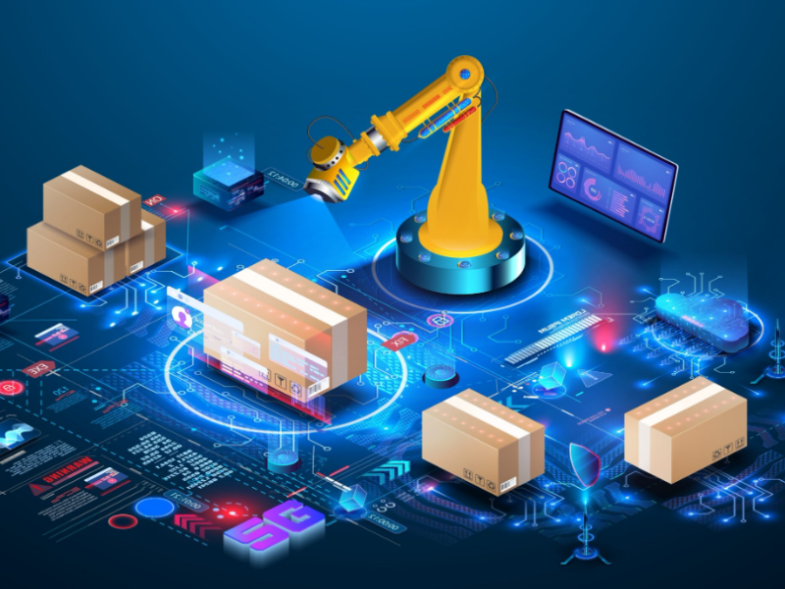AI in the Supply Chain: Efficiency Booster or Disruptive Force
The supply chain industry is experiencing a sea change driven by the integration of artificial intelligence technologies. From demand forecasting to automating warehousing operations, AI in supply chain operations has transformed how businesses manage resources, plan logistics, and mitigate risks. With innovations from supply chain AI companies, these tools enable businesses to go beyond streamlining operations to gain a competitive advantage.
In this post, we discuss how AI is used in supply chain tools to predict demand, inventory, and optimization across all processes.
How AI Predicts Future Needs with Accuracy
Forecasting has always been crucial in supply chain management, but traditional methods often come short in volatile markets. That’s where supply chain AI tools come into play, which use machine learning algorithms to analyze historical data, market trends, and external factors like weather and geopolitical events that allow businesses to predict future demand and avoid overstocking or stockouts precisely.
For instance, a retailer will use AI for supply chain to forecast and prepare for seasonal spikes or unexpected shifts in consumer behavior. Huge cost savings with enhanced customer satisfaction can be achieved by aligning the production schedule and inventory levels with exacting demand predictions.
AI-Powered Solutions for Stock Management
Inventory management has been one of the major sore spots in supply chain operations for a long time, but with supply chain AI tools, the game is changing. The software offers real-time insight into the number of stock levels, which lets businesses manage optimum levels without overburdening the storage facility or tying up capital.
AI-driven systems reorder supplies in the event of a stock-out, thereby preventing human errors and assuring seamless operations. Besides that, predictive analytics in supply chain AI identifies slow-moving inventory items, thus offering suggestions for actionable strategies to improve stock turnover ratios. This precision allows companies to cut down on waste, minimize the cost of carrying stock, and optimize profitability.
Smart Warehousing: AI-Driven Robots and Automation
Some supply chain AI companies are making warehouses smarter by incorporating robotics and automation. These AI-powered robots do repetitive picking, packing, and sorting jobs with incredible speed and accuracy, helping increase efficiency and reduce workplace injuries.
Besides, AI systems in supply chain tools software provide dynamic slotting, whereby warehouse layouts are optimized in real-time, considering demand patterns. This ensures that high-demand items are easily accessible, reducing order processing times.
AI-powered advanced supply chain systems can be further integrated with IoT sensors to monitor environmental conditions, including temperature and humidity. It becomes critical, especially for pharmaceutical and food industries that require maintenance of specific conditions for product quality.
A reliable Food Delivery App Development Company can leverage these technologies to ensure real-time monitoring, safe deliveries, and enhanced customer satisfaction in temperature-sensitive food logistics.
Logistics and Delivery: Optimizing Routes and Tracking with AI
The success of any supply chain always depends on effective logistics and delivery, and using AI for supply chain management has changed these spaces. AI route optimization tools consider all elements that come into play in finding the best route: traffic flow, fuel prices, and delivery windows. They decrease transit times, slash fuel consumption, and boost on-time delivery rates.
Furthermore, real-time tracking through supply chain AI-powered tools ensures transparency across the delivery process. Customers can track their shipments in real-time, thus building trust and satisfaction. To businesses, AI-enabled tracking provides insight into potential bottlenecks for proactive problem-solving.
Autonomous cars and drones will be the next big things in AI-powered logistics. Supported by supply chain AI companies, these innovations promise to further revolutionize last-mile delivery by cutting costs and speeding up delivery times.
Risk Mitigation: AI for Supply Chain Resilience and Disruption Management
Companies can take serious blows from disrupted supply chains, be it because of a natural calamity, geopolitical turbulence, or pandemics. Artificial intelligence has developed some strong arsenals that might reduce this risk. AI can use varied data to analyze any vulnerability within the supply chain and provide contingent alternatives.
AI-powered supply chain tools software can track potential risks in suppliers, such as financial instability or reliance on a single source. In such cases, business diversity needs to develop alternative sources or backup plans.
AI-driven supply chain AI tools have the ability to simulate various disruption scenarios so that companies can prepare for worst-case scenarios. This proactive approach will lead to quick adaptation, reducing downtime and ultimately retaining customer trust during crises.
Conclusions
AI integration in supply chain operations is no longer a luxury but an imperative for businesses to thrive in today’s competitive landscape. Supply chain AI tools unlock unparalleled efficiency and resilience, from predictive forecasting to smart warehousing and real-time logistics optimization.
Partnerships with leading supply chain AI companies provide state-of-the-art solutions tailored to the business’s needs. Although an upfront investment may be necessary to install these technologies, the cost savings, efficiency gained, and rise in customer satisfaction pay for the initial outlay over time.
In such a constantly changing market, adopting AI for supply chain management would be the ultimate strategy for future-proofing business operations.









